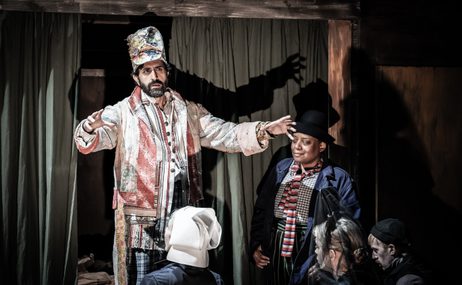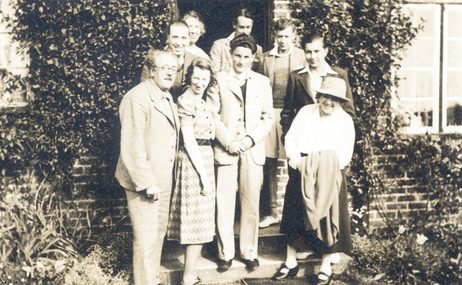Presented by Sarah Bardwell
Britten composed this work for solo oboe in 1951, completing it in time for its premiere during the Aldeburgh Festival of that year. As had become traditional in the early Festivals, there was a concert on Thorpeness Meare, with soloists and audiences alike in rowing boats, and the Six Metamorphoses were first heard on the water: the intrepid soloist was Janet Boughton. As Sarah Bardwell describes in this week’s film, this concert was recently recreated with Nicholas Daniel as the boat-bound soloist.
The solo oboe is surprisingly well-served among Britten’s repertoire: in the 1930s he composed the Phantasy, op. 2 (which featured the oboe alongside a string trio), along with Temporal Variations and Two Insect Pieces. But Six Metamorphoses appeared to have more lasting impact, in the sense that it encouraged other composers to recognise the expressive potential of the oboe and helped to expand its repertoire. It is a real showcase for the instrument, allowing it to flourish both musically and even dramatically: the majority of the movements depict ‘metamorphosis’ – the transformation of a particular character reflected in musical ‘transformations’ in the concluding sections. Several of them reflect tragic stories, such as ‘Niobe’, and the oboe’s association with melancholy works beautifully; while, contrastingly, in ‘Bacchus’ the soloist gets to let their hair down with some appropriately raucous ‘bacchanalian’ noises.
Watch more

74th Aldeburgh Festival
09 – 25 June 2023
A Song at The Red House: 'Tell me the Truth About Love', by Benjamin Britten
Soprano Elise Caluwaerts performs one of Britten's cabaret songs, with a witty text by WH Auden. Accompanied by Lucy Walker on Britten's Steinway piano…
Work of the Week 24. Violin Concerto
Presented by Roger Wright
